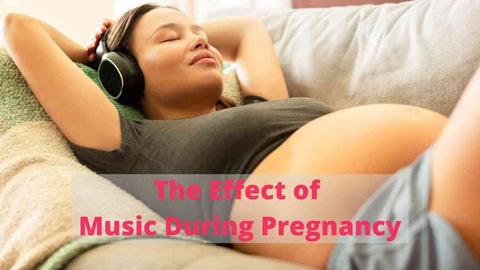Breastfeeding: Everything You Need To Know
Many people consider breast milk is the best meal for your baby. It contains many nutritional components, antioxidants, enzymes, immune properties, and other antibodies that are helpful for a baby’s growth.

The mother’s immune system is stronger and contains antibodies that pass through the milk to protect her baby. Breast milk also contains some substances that act as a natural soother for infants.
In this article, we answer your most common breastfeeding-related questions. Let’s begin.
Why is breastfeeding important for a baby’s health?
Breastfeeding is important for your baby’s health. Breast milk provides your baby with all the essential nutrients in balanced proportions. This ensures that your baby is healthy and satisfied as he grows.
Breast milk can protect your baby against many allergies, sickness, and obesity. It also protects the baby against some fatal diseases like cancer and diabetes.

Breast milk can even prevent severe ear infections. As breast milk is easily digestible, your baby will not have any constipation or diarrheas.
Babies who feed on breast milk have a healthy weight and a higher IQ than other babies.
Benefits of breastfeeding for baby
According to the Cleveland Clinic, babies who are breastfed on their mother’s milk receive the following health benefits from every feed:
- Breastfeed babies have a very strong immune system.
- Their immune system can fight diarrhea, constipation, gastroenteritis, gastro-esophageal reflux, and preterm necrotizing enterocolitis (NEC).
- Babies who breastfeed on their mothers are less sick overall.
- Breastfeed babies reportedly have fewer colds and other respiratory illnesses. They do not develop pneumonia, whooping cough, and respiratory syncytial virus easily.
- There are fewer cases of breastfeeding babies with bacterial meningitis.
- There is a low infant mortality risk for breastfed babies.
- They have a lower risk of getting a severe infection that can damage hearing.
- There is a lower risk of Sudden Infant Death Syndrome (SIDS) with breastfeeding babies.
- They are safe from asthma, allergies, and eczema.
- There is a lower risk of type I and II diabetes with babies who fed on their mother’s milk.
- They have enhanced brain maturation.
Physical benefits of breastfeeding to babies:
- They have better eyesight than formula-feed babies.
- Usually, breastfed babies don’t have cavities and have a lower likelihood of becoming obese.
- There are fewer speech problems and orthodontic issues with these babies.
How does breastfeeding affect the mother’s body?
Breastfeeding can affect your body in several ways. Typically, it is physically healthier for moms. These physical benefits include:
- After delivery, new moms are always worried about weight gain during pregnancy. Breastfeeding encourages faster weight loss after delivery. When your baby feeds on your milk, you burn about 500 calories every day to maintain your milk supply.
- Breastfeeding results in less postpartum bleeding, anemia, and fewer urinary tract infections.
- In addition to this, it helps the uterus contract and returns to its normal size.
- Breastfeeding has a soothing effect on the mother and can lower the risk of postpartum depression.

Health benefits of breastfeeding
The following are some of the health benefits of breastfeeding for mothers:
- Breastfeeding lowers the risk of breast and ovarian cancer.
- It lowers the risk of rheumatoid arthritis and lupus.
- The chances of endometriosis and osteoporosis will be lowered.
- It also lowers the risk of hypertension, cardiovascular disease, and diabetes.
Emotional health benefits for moms
The following are some emotional health benefits of breastfeeding:
- Breastfeeding releases the hormones oxytocin and prolactin in the mother. Both these hormones produce a naturally soothing effect that reduces stress and encourages positive feelings.
- Mothers who nurse their babies have more confidence and self-esteem.
- Breastfeeding promotes calmness. Babies who feed on their mother’s milk cry less and have fewer childhood illnesses. It results in the overall wellness of the body and mind of the whole family.
- Breastfeeding allows skin-to-skin contact between mother and baby. So you two are emotionally more attached.
- The physical connection between mother and baby helps the baby to have reduced social and behavioral problems.
- When babies know who their caregivers are, they will trust their mothers more. Similarly, mothers can easily understand their infant’s cues.

Breast milk changes as your baby grow
Breast milk is the perfect and complete food for your baby. As your baby grows, your breast milk changes in its composition and volume based on your baby's demands.
Recommendations to start breastfeeding
When you are starting to feed your baby, consider the following tips:
- You should start breastfeeding soon after your baby is born.
- Feed your baby 8 to 12 times a day.
- Hold your baby so that you maximize skin to skin contact with your baby.
- When you are in the hospital, keep your baby with you.
- Only give breast milk to your baby.
- Don’t give a pacifier to your baby until breastfeeding is done.
| For more helpful tips on breastfeeding your baby, read Best Tips for Breastfeeding. |
Does breastfeeding hurt?
In normal cases, breastfeeding is not supposed to hurt. If you feel pain or get hurt during or after feeding your child, you should seek medical advice. You can also contact a lactation consultant for more suggestions.
Pain during feeding may indicate sore or cracked nipples. You can use a nipple cream and/or Nipple Pads. Our nipple pads are made from a very soft and super absorbent fabric that help relieve breast soreness and tenderness, while keeping you dry.
Sometimes breasts hurt when the baby is not properly attached to your breasts, which means the baby is not in the correct latching position. In this situation, the baby does not receive enough milk, constantly wants to feed and pull off the breast in frustration causing you pain.

Why breastfeeding may hurt
Sometimes breasts hurt when the baby is not properly latched to your breast or not in the correct latching position.
In this situation, the baby is not taking the surrounding breast tissues deep in the mouth and that can cause pain. When the nipple is not fixed in the baby’s mouth, it is pinched in between the baby’s tongue and the roof of the mouth which can be very painful for the mother.
The baby does not receive enough milk, constantly wants to feed and pull off the breast in frustration causing you pain.
Different latching positions
If you are going to feed your baby for the first time, remember that your baby can latch in different ways.

Shallow Latching
A shallow latch means your baby is latching mostly on the nipple instead of the breast. In this position, a baby’s tongue cannot reach the milk ducts properly.
Therefore, the baby will not get enough milk and you may feel pain. Shallow latching results in sore cracked or grazed nipples and sometimes blisters on nipples.
Deep Latching
It is one of the most comfortable positions to feed your baby. In a deep latch mother’s breast fills the mouth of the baby deeply. The baby’s tongue can work properly during sucking so the baby can reach more milk.
These best breastfeeding positions are very comfortable and tend to be pain-free.
What to eat when breastfeeding
Eat Healthy food
Similar to your pregnancy diet, if you eat well-balanced meals when breastfeeding that are enriched with nutrients, it will be helpful for you and your baby. A healthy diet promotes the strong development and growth of your baby.

Drink Plenty of Water
You might be wondering why you are seeing drinking water in every article. The answer is: Water is your best option. Yes, water is nature’s gift to mankind and it can do wonders for your body.
Therefore, you should drink plenty of water before and after delivery. If your urine is dark yellow, it means your body needs hydration and again, water can help you with that. Drink at least a glass of water every time you breastfeed.

Juices and Sugary Drinks
Sugary drinks and juices can lead to weight gain. If you want to lose weight after delivery, you should avoid these drinks or drink in moderation.
Limit caffeine Intake
Drinking a lot of caffeine can increase your visits to the toilet. Urinating can make you dehydrated. It can also disturb your baby’s sleep cycles. 2 to 3 cups of caffeine a day is enough for you to keep everything in a balance.
Food Enriched with Proteins
Include protein, iron, and calcium-rich food in your diet. It can help to stimulate breast milk production.
You can add the following food items to your meal:
Whole grains, dried fruits, eggs, leafy vegetables, citrus fruits, seeds, dairy, beans, and low-mercury seafood.

Breast milk’s benefits to the environment
The best thing about breast milk is its availability. It is ready for your baby whenever and wherever you need it.
You don’t need a bottle to feed your baby and there is no bottle to wash every time you feed your baby.
It is good for the environment as there is no wastage of milk.
Final Thoughts
There are many benefits of using breast milk - both for you and your baby. These are physical, mental and emotional benefits and include helping to boost your baby’s immunity and helping you lose weight after birth. There can be some challenges, especially for first time moms, but with some help and proper diet, you can experience these benefits.



